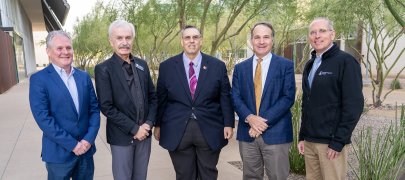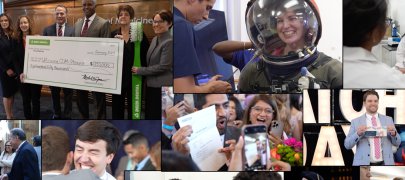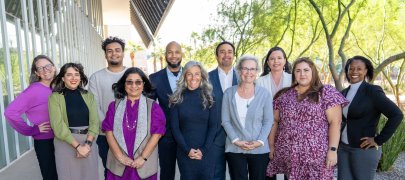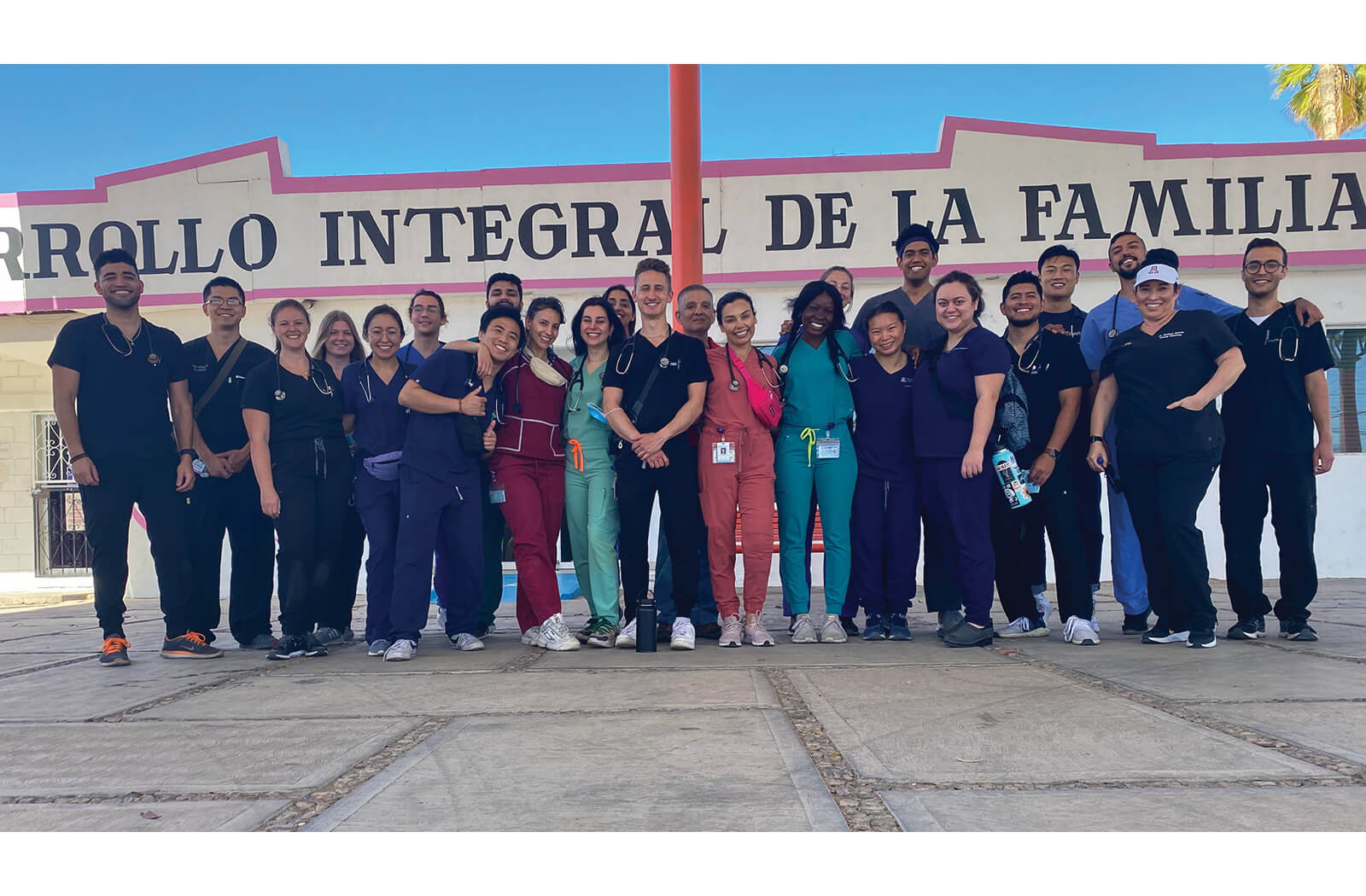
Medical Students Travel to Rocky Point, Mexico, to Provide Care to Migrants

A commitment to service is a hallmark of the medical student experience at the University of Arizona College of Medicine – Phoenix. That dedication was exemplified when a group of medical students traveled to Rocky Point, Mexico, to help migrants in need of health care.
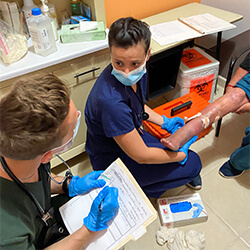
Inspired by a similar journey made by students at the College of Medicine – Tucson, the trip came together for the MHIG and LMSA “Through the shared goals of health equity, passion for migrant health and attempts to increase cultural competency,” explained Reynoso.
The relationship with the Rocky Point Medical Clinic (RPMC) was facilitated by David Beyda, MD, chair of the college’s Department of Bioethics and Medical Humanism and director of the Global Health Program.
“The most important tool that we bring to the patients’ bedside is ourselves, and what we leave behind is the relationship that we establish with those who come to us for help,” said Dr. Beyda. “That is the experience of being at the RPMC. Knowing what a privilege it is to serve those who are vulnerable and underserved.” Throughout his career in medicine, Dr. Beyda has made trips across the world to help provide care to the underserved.
Reflecting on the trip, Reynoso embraced Dr. Beyda’s sentiments. “Many lessons can be learned from these medical brigades, but one that can be difficult to learn, but important to embrace, is that a one-day trip to an underserved area does not mean our work there is done,” she said.
“It can be frustrating to want to do a full work-up on a patient but have limited resources, or want to prescribe a medication that is not available, or give a medication that a patient has waited hours to receive, when it can be readily accessible in our local pharmacies in the United States,” she added.
Though frustrations do come knowing there is much left to be done, it was extremely rewarding to be involved. Each day, the students served nearly 200 patients. They helped check people in; assisted in triage; collected medical histories; conducted patient and doctor-centered interviews; performed focused physical exams; assisted with procedures; interpreted for physicians and students; and walked the patients to the pharmacy to receive their medications, ensuring that each prescription was correct.
Many of the students spoke Spanish, which helped facilitate the care they provided, while also allowing them to build a rapport with the patients.
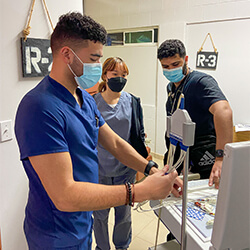
Susie Stavros, MD, founder of the RPMC, was complimentary of the work the students have done. “Some of these students have become like our kids. It has been a joy to be involved with them,” she said.
The MHIG strives to educate students at the College of Medicine – Phoenix on the unique health care needs of migrants, and advocates for health care as a right, not a privilege. MHIG has a section of its organization dedicated to helping train students to assist with asylum applications, and offers unique experiences to provide care for the deeply underserved, such as clinical experiences serving low-income communities, and a yearly trip to Tijuana to serve those seeking asylum and making the journey to the United States.
The college’s chapter of the LMSA was awarded 1st place for the LMSA National Service Award, which specifically highlighted their trip to Tijuana in November 2021. That service was a collaboration between MHIG, LMSA and the college’s Office of Equity, Diversity and Inclusion.
In late May, Dr. Beyda and 17 Global Health students will serve a week of clinic in Rocky Point.
About the College
Founded in 2007, the University of Arizona College of Medicine – Phoenix inspires and trains exemplary physicians, scientists and leaders to optimize health and health care in Arizona and beyond. By cultivating collaborative research locally and globally, the college accelerates discovery in a number of critical areas — including cancer, stroke, traumatic brain injury and cardiovascular disease. Championed as a student-centric campus, the college has graduated more than 900 physicians, all of whom received exceptional training from nine clinical partners and more than 2,700 diverse faculty members. As the anchor to the Phoenix Bioscience Core, which is projected to have an economic impact of $3.1 billion by 2025, the college prides itself on engaging with the community, fostering education, inclusion, access and advocacy.
